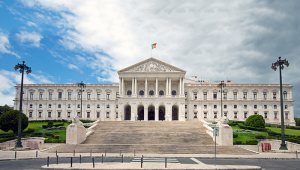
Following a no-confidence vote last week that ousted the country’s prime minister Tihomir Oreskovic and brought down his five-month-old government, parliament has opted for dissolution by a vote of 125 to 15. The move will mean early elections, which are likely to be held in September.
Analysis firm IHS has said this “latest political impasse” is likely to spell prolonged instability and undermine the country’s economic recovery, Reuters reports.
While Croatia finally emerged from a six-year recession in 2015, political turbulence has prevented the country from passing much-needed reforms to shore up the economy.
This most recent crisis was sparked by accusations of a conflict of interest on the part of Tomislav Karamarko, deputy prime minister and head of Croatia’s main coalition party, HDZ. Controversy surrounds a business deal between his wife and a lobbyist for a Hungarian oil firm.
Relations between the parties in the country’s ruling coalition, frantically formed five months ago amid a hung parliament, deteriorated, resulting in a political crisis that reached its peak when the HDZ filed a no-confidence motion against Oreskovic.
Analysts predict that neither the HDZ nor the main opposition party, the Social Democrats, will gain a clear majority in September’s elections, resulting in another hung parliament and yet another unstable government.
Croatia has one of the weakest economies in the EU, with growth for 2016 projected to be 1.9% by the IMF.
Unemployment has surpassed 15%, and government debt has topped 87% of GDP. With a deficit of 3.2% of GDP in 2015, the country is also subject to the EU’s corrective mechanism to resolve member states’ “excessive deficits”.
In its most recent assessment of the country, the IMF noted that the political environment presents a challenge that threatens to derail reforms and economic policy-making.
The fund stressed the importance of finalising and implementing national reform plans, which include measures to streamline benefits, reduce spending, increase tax and strengthen monitoring and control of the public finances.













